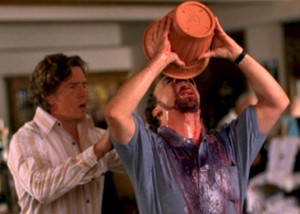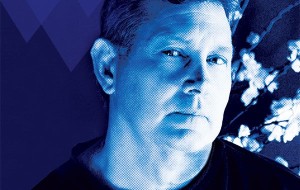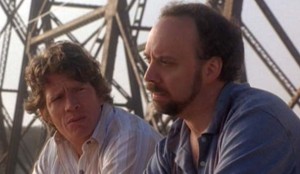REX PICKETT author, filmmaker, fellow artist, revealed underlying message in his work, openness of the generations, and bearing one’s own being
I feel in your novel Sideways, Miles is indicative of a passive figure who’s also self-serving in his own right while Jack is more of a dominant, impulsive force. Do you see a parallel from your generation?
There is no question that he is the classic Jungian introverted/thinking type and Jack is his polar opposite: the extraverted/feeling type. I don’t think about this when I’m writing, but I see it after the fact. There is no question that Jack is more of a force of nature.
For me, as a writer, it’s: opposites clash. Opposites = conflict = drama = comedy = >> to resolution. = a novel.
I guess I want to believe the characters are more timeless and not linked generationally, but there’s no question that a book/movie fixes them in a generation. To me, Miles (me) doesn’t feel a part of any generation. Yes, he’s bookish, yes he’s a writer and not a software coder or someone who is wedded to his cellphone, and yes he still believes in the transformative powers of art, but I feel those attributes are cross-generational. Jack is clearly a type whom we all know. He’s not superficial, but he seems that way. He sees a positive in everything. Or tries to. Miles is a dyed-in-the-wool fatalist, but in his fatalism he sees a deeper, more profound, truth than Jack. However, Miles desperately needs Jack to take him to the world and uplift his spirits, or else he will end up being a self-sabotaging troglodyte, forever unloved. Jack needs Miles for the self-reflection that Miles’s superior intellect brings, that he, Jack, so sorely lacks. They are two sides of the same coin, and though they are a product of their generation, I think the enduring, and endearing, quality of the movie is that we recognize these archetypes in any generation.
I see the wineries representing a bliss or a haven if you will. Almost metaphor for relaxation, where you going for this? Also, ironic how that same sampling of wine has a consumption aspect that plays into their bliss, again, done deliberate? By the end of the book, I’m feeling no matter what they’ve consumed, vis-à-vis; wine, women, adventure, it never amounts to much, as the characters themselves still aren’t satiated. Almost like you’re saying we’re never fulfilled no matter how much we take in which is why we just need to be content within ourselves?
“There is no question that Miles — like me at the time — needs to get away. He’s leaving with little or no money, but on a minor high: his book has a chance at publication. Everyone’s dream. Jack is leaving on a high, too, because he’s got one last week of unadulterated freedom to be whomever he wants to be, drink, get down with his friend Miles, maybe get a dose of life lessons from his intellectual — and recently divorced! — friend. Miles is too smart to think that wine, or a one-week trip, is going to be an anodyne to any of his life’s worries. He may want to indulge, he may want to get away from the pressure cooker of his life — different in the book than in the movie, by the way — but his life is always there. No amount of wine will make it go away, even if it appears at time that neither know the meaning of insatiate. Nothing anyone does will ever prevent anyone from expunging the obvious: we’re all going to die. It doesn’t matter how much success you have, or whatever, that fate is inevitable. And Miles is keenly aware of it. Jack doesn’t think like that. Miles wants to get away from his life. And Jack needs an escape before he begins his life.”
In the end, the realization for both, as I see it, is that very few are fated for greatness, or to be remembered. And, yet, I believe, this is an intrinsic desire in all human beings: to be remembered. To be immortalized. And no amount of anything will ever get the vast majority there. In the end, Sideways is the blur of a memory for both Miles and Jack, one they will reminisce about — and probably embellish — in years to come. And there’s a sadness, too: they’re parting, they’re going in different directions. This sense of parting is more poignantly expressed in the book, as well as the play adaptation of my book, than in the movie. Alexander Payne (the writer/director of Sideways) is not a sentimentalist, so he quieted that emotion in the movie, I felt.
Do you feel Jack and Miles’s journey is really a vacation, never an exploration?
What starts out as a vacation, and turns into a disaster of sorts, is really, as I wrote above, in retrospect, a great crimson blot on the trajectory of their lives. And Jack gets this! He says it in the book and the play. Miles will one day write about it and make him and Jack famous, as I did. But at the time, in the moment, it’s Jack who has this revelation. In the movie, it’s in Jack’s wink to Miles at the wedding. But, in the book/play it’s in dialogue, and eloquently expressed by Jack, even with his limited vocabulary. To me, it is an unbelievable exploration of their whole beings, their entire souls. They descend into the proverbial realm of Persephone and make it back, transformed. The comedy maybe undercuts this quasi-hero’s journey and, if viewed only as a comedy, can seem trivial. But, if it were just a comedy, and not a journey of the soul, the film would not have stood the test of time. Okay, maybe they need the wine to disinter those deeper feelings — uninhibiting them, as it were, to get there — but it’s only in going to the dark side that they realize something greater. In that sense it is way more than a vacation, but I never wanted to hammer anyone over the head with some ham-fisted, sausage-fingered message-mongering story. In the end, to sell despair, and psychological growth through despair and desperation and deprivation, I needed the via regia of comedy.
I feel like at the heart of Sideways you’re conveying human connection, in various forms, was that the underlying statement?
Of course, it’s always about human connection. It’s always about the human to me. I don’t write genre. I’m only interested in the soul’s voice expressed in film or literature. Or theater now. It’s hard to do because you have to risk being personal. And that offends some people. Or makes them uncomfortable. It’s risky to go there. But, I’m unafraid. And when I wrote Sideways I had absolutely nothing to lose.
The real hard part is to find your voice and then those words to express. Many people are great writers when they’re writing in their head. But, when they sit down at a desk to put it down they realize the story that was only moments ago was streaming out of them is now landlocked in their lack of a craft to express it. That’s the hard work part. The dream is easy.
Was the Sideways trilogy a conscious work against the backdrop of the society you know and the culture you live in?
I take from real life, from the era I’m writing in, and then I fictionalize for my narrative needs. If that answers your question. It’s not so much about where society is at. It’s where Miles is at. Writing is not an avocation; it’s a life. If you aren’t prepared to give it your life, then you’ll probably never make it.
Life is not a meritocracy. Sadly, with wealth inequality, nepotism — which is rampant in Hollywood — not everyone has the same shot. I hate it when people say that if you work harder than others, or you’re more talented, that you’ll find a way to make it. Bullshit. I’ve seen so many people who were mediocre talents who went on to have great careers because they got more than one chance. I’m not going to name the names, but everyone knows them. There’s no question that desire and the need to want to say something, as opposed to people who have the need to say something so they can live the lifestyle, will get you further than not having any talent, but there’s no question that having people believe in you is important.
People often will say to me that I must live a charmed life. To which I always reply: You wouldn’t want to live the life I’ve lived in order to live the ostensibly charmed life I’m currently living.
If you want to write you have to read, read, and read. And write. I’m of the school that you should just vomit it out and fix it in revisions. I’m also of the belief that you should have the story adumbrated in your head all the way to the end — yes, all the way to the end — before you begin. 2017 Nobel laureate Kazuo Ishiguro wrote his legacy work The Remains of the Day in 4 weeks!! Sure, he spent half a year researching and ideating it, but he wrote the book in 4 weeks. He’s my hero. But, everyone’s process is different.
Furthermore, do you feel an Artist has a duty to the world in which they occupy or only to themselves?
This is a very deep question. Well, if you’re a published writer you’re going to be judged — presumably — for all time — because your work’s in print. Artists — the good ones — don’t ask for a lot from the world. They’re not in high demand. True artists. Most people I meet who want to be “artists,” really just want to live the lifestyle — agent, high-level meetings … they want all the superficial, materialistic trappings of the life, and don’t want to do the hard work, suffer — like Miles — the rejections, the hardships, the abandonment of family and friends when you persevere and they’ve given up on you, as they inevitably do. So, first, you have a responsibility for your own welfare, I guess, but you would be inhuman if you didn’t believe that your art could move somebody in the world that maybe helped them see their own predicament in it in a brighter, more brilliant light. My greatest moments aren’t when I get a royalty check. They’re when somebody writes me and says how much my work has moved them. So, I don’t think the artist has a duty, per se, to the world, but they do have a duty, I believe, to be honest to their characters, to their story. But, it’s harder and harder in this sell-out world of sensationalist garbage.
Finally, my generation of Millennials are up against a lot, no doubt, what would you offer in terms of us gaining footing in the world, in general?
Well, gosh, I’m a pessimist. I see the world going to hell. That’s why I never had children. I didn’t want to bring them into this world. And, now, it’s even worse. Obviously, everyone comes from a different standing in life. If you’re born in the upper economic quintile you have boundless opportunities, and you’ll get numerous chances to fail and get it right — and that’s not fair! — but that doesn’t mean you won’t end up a drug addict or, more likely, a feckless loser. And if you’re born in the middle or lower quintiles it’s going to be a more difficult journey, alas. Especially with this current reactionary administration that is polarizing the wealth to the appalling point where America is fast approaching becoming a banana republic.
On a sunnier note, I would advise: for me, I truly believe that 4-5 years in college — even if college isn’t providing you what you need in the future and might saddle you with loans (something I didn’t have to worry about) — really exposes you to so much in the world. And if you’re fortunate enough to get scholarships or your parents have saved to pay for you, then it’s a great time to play in the sandbox and discover who you want to maybe be/become. My years at UCSD were some of the greatest in my life. I know that sounds like conservative advice, but that time in college might revolutionize you in a way that real life won’t.
Be careful who you listen to. If you have talent, be on the qui vive for those who are hanging around in the shadows waiting to take advantage of you.
Try not to saddle yourself with too much burden: children, debt, etc. That way you can hopefully avoid soul-destroying jobs that founder your ambitions on the shoals of despair and depression.
Call me old-fashioned, but really I’m not a Luddite. I was one of the first to adopt technology and went right to a computer when they came out. However … however … nothing replaces what reading — reading great books — does for the mind. If reading were a superannuated endeavor, or great writing had been replaced by another means to grow cerebrally, I would be the first to embrace it. But, I haven’t found that to be the case. To me — a guy who spends too much time on the Internet — reading saved me. I took two gap quarters at UCSD and read the entire Collected Works of C.G. Jung. 20 volumes! Took me six months. I was 19. No TV, no Internet, no Roku. Just me and those books. And it wasn’t always easy. But, in the end, it was a transformative experience.
Think about, in your youth, all the thousands of hours you wasted on the Internet, and how those wasted hours bought you so little in the development of your mind, your aesthetic sensibility, your social skills, and worse, and how you’re never going to get them back. Think of all the hours wasted on Snapchat and playing stupid video games. What did it buy you … as it enriched others who addicted you so they could live on an island and retire at 30? Don’t have children. When they’re adults, owing to inexorable ecological and socio-political catastrophes, they’ll be the prey of rats the size of Golden Retrievers ravening the scorched planet for the last vestiges of humankind.
“The Internet is a dark road to infinity potholed with links. Just as the tobacco industry did everything they could to keep your addicted to their horrible product — ditto for the sugar industry; Big Pharma — remember, Apple, Facebook, Instagram, Twitter, etc, only want one thing from you: your endless, mindless engagement. They see your brain as an ATM machine, the same way Big Pharma does, Big Sugar, the medical professions. Your mind, your body, is the last frontier of exploitative, colonialist capitalism. I hope to God your generation understands that you are being conned by this technology. And that comes from someone writing this on a MBP in an email browser. I hope to God your generation realizes that they control their minds and their bodies and not these venal capitalistic interests, driven by insanely powerful computers, competing for you very soul. Resist.”
Rex Pickett is currently writing The Archivist, a novel for Blackstone Publishing. And he will soon be working on the libretto for Sideways the musical comedy with composer Anthony Adams
Wise words to reflect on.
Thank you, Rex


